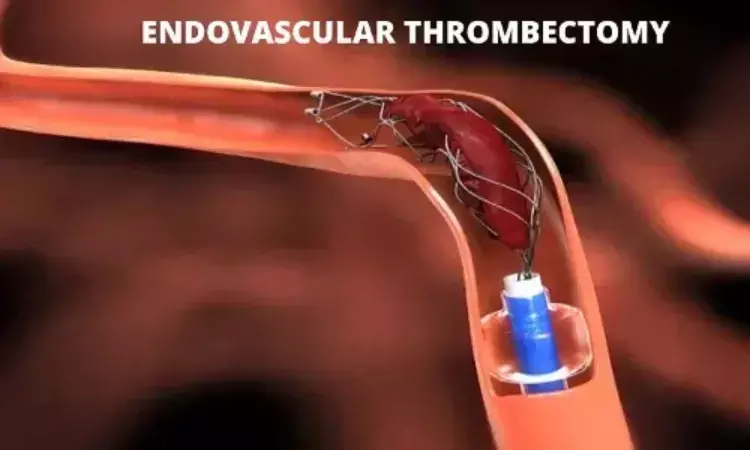- Home
- Medical news & Guidelines
- Anesthesiology
- Cardiology and CTVS
- Critical Care
- Dentistry
- Dermatology
- Diabetes and Endocrinology
- ENT
- Gastroenterology
- Medicine
- Nephrology
- Neurology
- Obstretics-Gynaecology
- Oncology
- Ophthalmology
- Orthopaedics
- Pediatrics-Neonatology
- Psychiatry
- Pulmonology
- Radiology
- Surgery
- Urology
- Laboratory Medicine
- Diet
- Nursing
- Paramedical
- Physiotherapy
- Health news
- Fact Check
- Bone Health Fact Check
- Brain Health Fact Check
- Cancer Related Fact Check
- Child Care Fact Check
- Dental and oral health fact check
- Diabetes and metabolic health fact check
- Diet and Nutrition Fact Check
- Eye and ENT Care Fact Check
- Fitness fact check
- Gut health fact check
- Heart health fact check
- Kidney health fact check
- Medical education fact check
- Men's health fact check
- Respiratory fact check
- Skin and hair care fact check
- Vaccine and Immunization fact check
- Women's health fact check
- AYUSH
- State News
- Andaman and Nicobar Islands
- Andhra Pradesh
- Arunachal Pradesh
- Assam
- Bihar
- Chandigarh
- Chattisgarh
- Dadra and Nagar Haveli
- Daman and Diu
- Delhi
- Goa
- Gujarat
- Haryana
- Himachal Pradesh
- Jammu & Kashmir
- Jharkhand
- Karnataka
- Kerala
- Ladakh
- Lakshadweep
- Madhya Pradesh
- Maharashtra
- Manipur
- Meghalaya
- Mizoram
- Nagaland
- Odisha
- Puducherry
- Punjab
- Rajasthan
- Sikkim
- Tamil Nadu
- Telangana
- Tripura
- Uttar Pradesh
- Uttrakhand
- West Bengal
- Medical Education
- Industry
Endovascular thrombectomy benefits patients even beyond 24-hour window: JAMA

USA: Endovascular thrombectomy is beneficial for select stroke patients presenting beyond 24 hours of the last known well, findings from a recent study in JAMA Neurology have shown.
EVT was associated with better functional independence at 90 days (38% vs 10%) but increased odds of symptomatic intracranial hemorrhage (sICH) compared with medical management in the study of treatment beyond 24 hours of last known well. The SELECT Late Study findings support EVT's feasibility in selected patients beyond 24 hours.
Amrou Sarraj from the University Hospitals Cleveland Medical Center, Cleveland, Ohio, and colleagues aimed to evaluate functional and safety outcomes for EVT versus medical management in large-vessel occlusion patients beyond 24 hours of last known well in a retrospective observational cohort study.
The study enrolled patients between 2012 and 2021 at 17 US, New Zealand, Australia, and Spain centres. Eligible patients had occlusions in the middle cerebral or internal carotid artery (M1 or M2 segment) and were treated with endovascular thrombectomy or medical management beyond 24 hours of the last known well.
Functional independence was determined as a modified Rankin Scale score of 0-2 (primary outcome). Safety outcomes included symptomatic intracranial hemorrhage and mortality. PS (propensity score)- weighted multivariable logistic regression analyses were adjusted for prespecified perfusion parameters, clinical characteristics, and ASPECTS (Alberta Stroke Program Early CT Score). They were repeated in subsequent 1:1 PS-matched cohorts.
The study led to the following findings:
- Of 301 patients (median age, 69 years; 149 female), 61% of patients received EVT, and 39% received medical management.
- EVT was associated with better functional independence in adjusted analyses (38% vs control, 10%; inverse probability treatment weighting adjusted odds ratio [IPTW aOR], 4.56) despite an increased risk of symptomatic intracranial hemorrhage (10.1% for EVT versus 1.7% for control; IPTW aOR, 10.65).
- This association continued after PS-based matching on (1) ASPECTS and clinical characteristics (EVT, 35%, vs control, 19%; aOR, 3.14); (2) perfusion parameters and clinical characteristics (EVT, 35%, vs control, 17%; aOR, 4.17); and (3) ASPECTS, clinical characteristics, and perfusion parameters (EVT, 45%, vs control, 21%; aOR, 4.39).
- Patients receiving EVT had lower mortality odds (26%) than those in the control group (41%; IPTW aOR, 0.49).
"Endovascular thrombectomy is associated with higher odds of functional independence versus medical management, with consistent results seen in PS-matched subpopulations and patients with a mismatch, despite an increased risk of sICH," the authors wrote in their study.
"Our findings support the feasibility of EVT in selected patients beyond 24 hours. Prospective studies are warranted for confirmation."
Reference:
Sarraj A, Kleinig TJ, Hassan AE, et al. Association of Endovascular Thrombectomy vs Medical Management With Functional and Safety Outcomes in Patients Treated Beyond 24 Hours of Last Known Well: The SELECT Late Study. JAMA Neurol. Published online December 27, 2022. doi:10.1001/jamaneurol.2022.4714
Dr Kamal Kant Kohli-MBBS, DTCD- a chest specialist with more than 30 years of practice and a flair for writing clinical articles, Dr Kamal Kant Kohli joined Medical Dialogues as a Chief Editor of Medical News. Besides writing articles, as an editor, he proofreads and verifies all the medical content published on Medical Dialogues including those coming from journals, studies,medical conferences,guidelines etc. Email: drkohli@medicaldialogues.in. Contact no. 011-43720751


